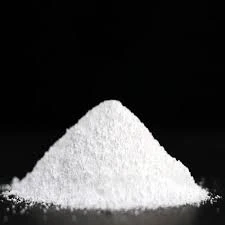The Role of Oxidizers in Water Treatment
Water is an essential resource for life, and ensuring its safety and purity is of utmost importance. As pollution levels rise and waterborne diseases become more prevalent, the need for effective water treatment methods has never been more critical. One of the most significant advancements in water treatment technology is the use of oxidizers. This article delves into the role of oxidizers in water treatment, their mechanisms, types, applications, and benefits.
Understanding Oxidizers
Oxidizers, also known as oxidizing agents, are substances that have the ability to accept electrons from another substance in a chemical reaction. In the context of water treatment, oxidizers play a crucial role in the removal of contaminants. They can break down harmful pollutants, disinfect water, and improve overall water quality. By introducing an oxidizing agent into water, harmful compounds can be converted into less harmful ones, making the water safer for consumption and use.
Mechanisms of Action
The mechanisms through which oxidizers work can vary depending on the type of oxidizer used. Generally, oxidizers react with organic and inorganic materials in water. For instance, they can effectively eliminate pathogens such as bacteria, viruses, and protozoa through a process called oxidative destruction. In this process, oxidizers disrupt the cellular structure of microorganisms, rendering them inactive and unable to cause disease.
Additionally, oxidizers can break down complex organic compounds into simpler substances through oxidation-reduction (redox) reactions. This is particularly useful in treating wastewater, where high levels of organic material can degrade water quality.
Types of Oxidizers Used in Water Treatment
Several types of oxidizers are commonly used in water treatment processes
1. Chlorine One of the most widely used oxidizers, chlorine is effective in disinfecting water. It can kill a broad spectrum of microorganisms and is often used in municipal water supplies. However, chlorine can form harmful byproducts when it reacts with organic matter, leading to concerns about its long-term use.
2. Ozone Ozone is a powerful oxidizing agent that is becoming increasingly popular in water treatment. It has a higher oxidation potential than chlorine, allowing it to effectively break down a wide range of contaminants. Ozone treatment also leaves no harmful residuals in the water, making it an environmentally friendly option.
3. Hydrogen Peroxide This oxidizer is used for both disinfection and the treatment of organic pollutants. Its effectiveness in breaking down complex organic materials makes it suitable for advanced oxidation processes (AOPs), which enhance the removal of contaminants in water.
4. Permanganate Potassium permanganate is another common oxidizing agent utilized in water treatment, particularly for iron and manganese removal. It also effectively oxidizes various other inorganic and organic substances.
Applications in Water Treatment
oxidizer water treatment

Oxidizers are integral to various water treatment processes, including
- Disinfection Ensuring that municipal drinking water is free from pathogens is critical. Oxidizers like chlorine and ozone are routinely used for disinfection purposes.
- Wastewater Treatment In wastewater facilities, oxidizers help break down organic matter and detoxify industrial effluents, facilitating compliance with environmental regulations
.- Iron and Manganese Removal The use of oxidizers is common in groundwater treatment to remove iron and manganese, which can affect taste, color, and safety.
- Taste and Odor Control Oxidizers can eliminate taste and odor-causing compounds, improving the overall palatability of drinking water.
Benefits of Using Oxidizers
The use of oxidizers in water treatment offers numerous benefits
- Effectiveness Oxidizers can remove a wide range of contaminants and pathogens, ensuring safer drinking water.
- Efficiency The processes involving oxidizers often require less time and energy compared to conventional treatments.
- Environmentally Friendly Many oxidizers, such as ozone and hydrogen peroxide, break down into harmless byproducts, reducing environmental impact.
- Versatility Different oxidizers can be tailored to specific contaminants, allowing for efficient treatment in various water sources.
Conclusion
As the demand for clean water continues to rise, the role of oxidizers in water treatment becomes increasingly important. Their ability to effectively eliminate contaminants, disinfect water, and improve overall water quality makes them indispensable in modern water treatment processes. As technology advances, the continued study and application of oxidizers will likely lead to even more efficient and sustainable methods for ensuring the safety of our water resources.

